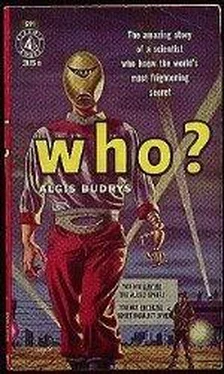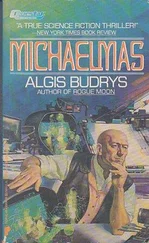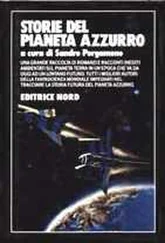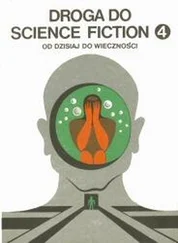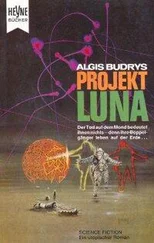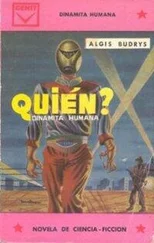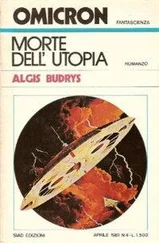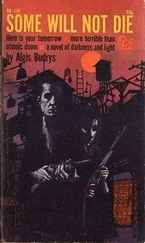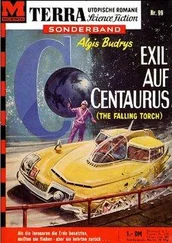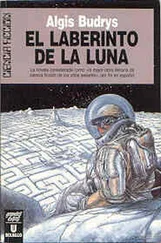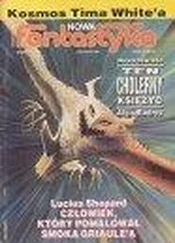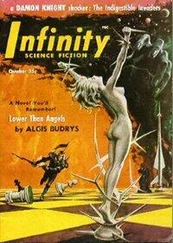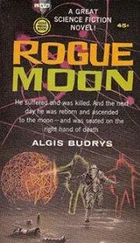Azarin was gambling a little there, he knew. Central Headquarters might decide to step in whether it had an ostensible reason or not. But he thought they would wait for a time. Their own staff had passed on Kothu and the rest of the medical team in the local hospital, since it was a military establishment. They would hesitate to belie themselves. And they knew Azarin was one of their best men. At Central Headquarters, they did not laugh at him. They knew his record.
No, he could afford to gamble with his superiors. It was a valuable thing to practice, for a man who would some day be among the superiors and was readying himself for it.
“Yes, sir. Two weeks more.” Azarin bit down on the end of the papyros, and the hollow filter tube of giltwrapped pasteboard crumpled. He began chewing it lightly, sucking the smoke in between his teeth. “Yes, sir. I am aware of the already long delay. I will bear the international situation in mind.”
Good. They were going to let him go ahead. For a moment, Azarin was happy.
Then the edge of his mind nibbled at the fact that he still had no idea of where to begin his interrogation — that not the first shred of the earliest groundwork had been done.
Azarin scowled. Preoccupied, he said, “Good-bye, sir,” put the telephone down, and sat with his elbows on the desk, leaning forward, the papyros held between the thumb and the forefinger of his right hand.
He was very good at his work, he knew. But he had never before encountered precisely these conditions. Neither had Novoya Moskva, and that was a help, but it was no help on the direct problem.
These temporary detentions were normally quite cut-and-dried. The man was diplomatically pumped of whatever he would yield in a short space of time. Usually, this was little. Occasionally, it was more. But always the man was returned as quickly as possible. Except in cases where it was desirable to stir the Allieds up, for some larger purpose, it was always best not to annoy them. The Allieds, upset by something like this, could go to quite extraordinary lengths of retaliation, and no one could tell what other strategies they might not cripple with their countermoves. Similarly, there were certain methods it was best not to use on their people. Returning a man in bad condition invariably made things difficult for months afterward.
So, usually it was a day or two at most before a man was returned to the Allieds. There, Rogers would take a day or two in discovering how much Azarin had found out. And that was the sum of it. If, at times, Azarin learned something useful, Rogers neutralized it at once. In Azarin’s opinion, the entire business was a pitiful waste of time and energy.
But now, with this Martino, what did he have? He had a man who had invented something called a K-Eighty-Eight, a man of high but undocumented reputation. Once more, Azarin cursed the circumstances of the times in which he lived. Once more he was angrily conscious of the fact that it was being left for the working professional-for Anastas Azarin-to clean up the work done by such fumbling amateurs as Heywood.
Azarin stared down at his desk in blank fury. And, of course, Novoya Moskva refused to act as though such a thing was basically its own fault. They simply pressed Azarin for results. Was he not an intelligence officer, after all? What could possibly be so difficult? What could possibly have taken him five weeks?
It was always this way in dealing with clerks. They had books, after all. The books had taught them how things were done. So things were done as they had been done in 1941 and in 1963, when the books were written.
No one knew anything about this man, except that he’d invented something. They had no file on him except for his undergraduate period at the technical academy in Cambridge, Massachusetts. Cursing, Azarin wished that the SIB had, in actuality, some of the super-ferrets with which it was credited by the kind studios-the daring and supernally intelligent operatives who somehow passed through concrete walls and into vaults stuffed with alphabetically arranged Allied secrets conveniently shapirographed in Cyrillic print. He would have enjoyed having one or two of these on his staff, knowing that any information they brought, back was completely accurate, correctly interpreted, did not have to be confirmed by other operatives, was up to date, had not been planted, and, furthermore, that these operatives had not meanwhile been subverted by Rogers. Such people did occur, of course. They immediately became instructors and staff officers, because they were altogether too few.
So there he had been, this Martino, protected by the usual security safeguards common to both sides. Azarin had planned to some day add the K-Eighty-Eight to the always incomplete and usually obsolescent jigsaw puzzle of information that was the best anyone could do. But he had not planned to have it happen like this.
Now he had him. He’d had him five useless weeks already. He had him almost fatally injured, bedridden, the makings of a good cause celebre if he wasn’t back in Allied hands soon-a man who looked extremely valuable, though he might turn out not to be-a man who, therefore, ought to be returned as soon as possible and kept as long as possible, and with whom, peculiarly, neither thing could be done at once.
It was a situation which verged on the comic in some of its aspects.
Azarin finished his papyros and shredded it to bits in the ashtray. It was all far from hopeless. He already had the rough outline of a plan, and he was acting on it. He would get results.
But Azarin knew Rogers was almost inhumanly clever. He knew Rogers must be fully aware of the situation here. And Azarin did not like the thought that Rogers must be laughing at him.
A nurse put her head in the door of Martino’s room. He slowly lowered his hand back to his side. The nurse disappeared, and in a moment a man in a white smock and skullcap came in.
He was a wiry, curly-haired little man with olive skin, broad, chisel-shaped teeth and a knobby jaw, who smiled down cheerfully as he took Martino’s pulse.
“I’m very glad to see you awake. My name is Kothu, I am a medical doctor, how do you feel?”
Martino moved his head slowly from side to side.
“I see. There was no help for it, it had to be done. There was very little cranial structure remaining, the sensory organs were largely obliterated. Fortunately, the nature of the damage-inflicting agency was severe flashburns which did not expose your brain tissue to prolonged heat, and followed by a slow concussive shockwave crushing your cranium without splintering. Not pleasant to hear, I know, but of all possible damages the best. The arm, I am afraid, was severed by a metallic fragment. Would you speak, please?”
Martino looked at him. He was still ashamed of the scream that had brought the nurse. He tried to picture what he must look like — to visualize the mechanisms that evidently were replacing so many of his organs — and he could not recall exactly how he had produced the scream. He tried to gather air in his lungs for the expected effort of speech, but there was only a rolling sensation under his ribs, as though a wheel or turbine impeller were spinning there.
“Effort is unnecessary,” Dr. Kothu said. “Simply speak.”
“I — ” It felt no different in his throat. He had thought to find his words trembling through the vibrator of an artificial larynx. Instead, it was his old voice. But his rib cage did not sink over deflating lungs, and his diaphragm did not push out air. It was effortless, as speech in a dream can be, and he had the feeling he could babble on and on without stopping, for paragraphs, for days, for ever. “I — One, two, three, four. One, two, three, four. Do, re, mi, fa, sol, la, ti, do.”
Читать дальше
